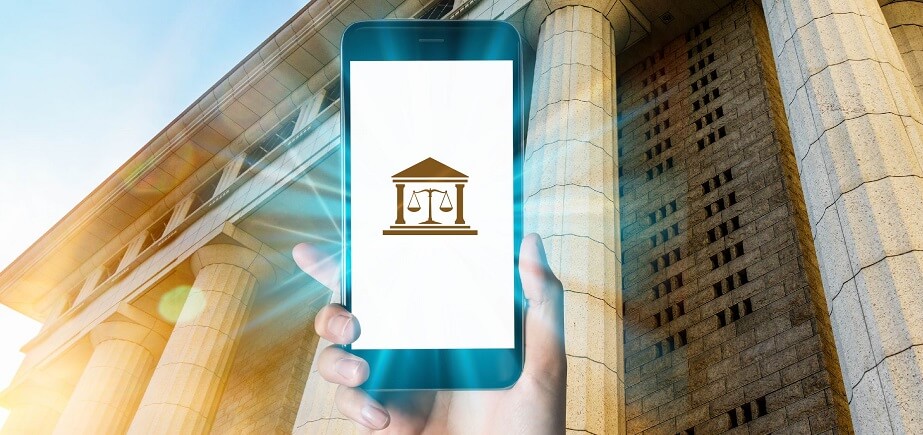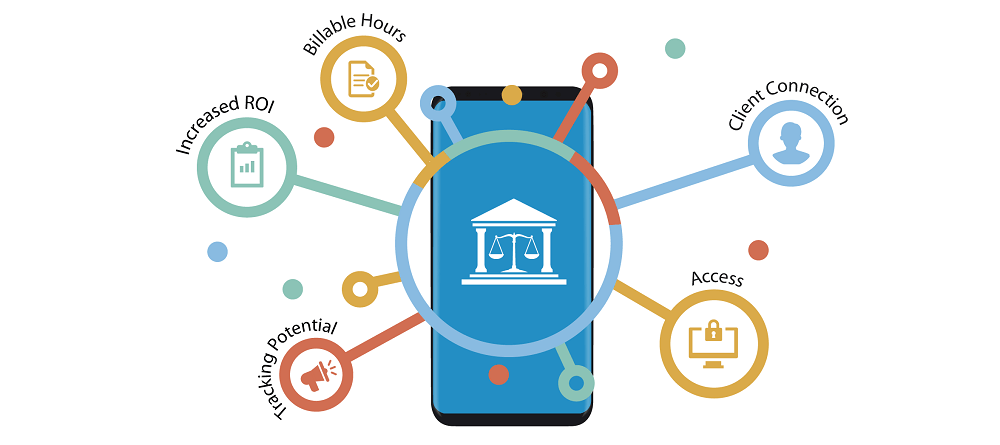How Enterprise Mobility Is Creating a Paradigm Shift in Law Firms
Sep 17, 2018 | 42Gears Team
Guest Contributor : Scott Blumenshine, Blumenshine Law Group
The rise of mobile technology has created an immensely competitive and complex digital ecosystem on a global scale. Instantaneous access to digital contacts, calendars, notes and tasks on mobile devices has been the norm for a while now.
But now, cutting-edge business technologies are allowing the ability to not only access but also to modify and share files across myriad platforms and devices . This level of mobility is creating a paradigm shift in how technology is integrated, shared and protected. For law firms specifically, enterprise mobility offers extensive benefits and is fast becoming a leading form of strategy and device utilization, boosting some firms above others.
Law Firm Enterprise Mobility Basics
Times are changing—fast. With ever-faster processing speeds and near-instantaneous sharing, mobile developments and applications are on the rise. Here are some quick facts about the way law firms rely on enterprise mobility, according to the American Bar Association’s TECHREPORT 2017, focusing on mobile technology. Even lawyers with physical offices spend time outside of the office working on business; 77% work at home, 33% work while they travel, 20% work from opposing counsel’s or clients’ office or from court. Additionally, 30% of lawyers telecommute once weekly.
No matter where they are working, up to 96% use a smartphone in addition to their primary work platform, a laptop. The near-total 96% of smartphone users makes it pretty clear that law firm mobility is huge.
A 2017, a Fliplet study on the state of mobile apps in U.S. and U.K. law firms found that among 300 agencies, 80% of current law-related apps were developed during 2016 and 2017. It also reported that up to 91% of attorneys couldn’t imagine working without a mobile or web application anymore. So, while legal smartphone applications may be a new concept, they are quickly gaining traction and aiding professionals working in the new digital domain of law.
Mobile Benefits and Paradigm Shift
Mobile devices are not only easy to use, intuitive and fast, but they also have many other added benefits as well.
Access: The global reach of the Internet has essentially erased geographic boundaries for international businesses. However, the catch to global business expansion is that an extensive file sharing platform is an absolute must.
Lawyers need to access, update and share legal documentation, calendar appointments and case notes while tracking their progress. There are also legal databases, case registry searches and law comparison mobile sites, all of which broaden the instant access of each user.
Usually, the processes are clunky and the sharing is slow, with maintaining progress notes considered a time-consuming annoyance. Going mobile eliminates this hassle by automatically indexing and storing the data uploaded and worked on within the devices, making all of those documents, appointments, verification, search details, etc. accessible on a single interface. Single platform accessibility means massive productivity boosts.
Client Connection: Mobile applications allow firms to access client portfolios immediately, from a single access point. This allows attorneys to work more efficiently and get back to clients faster, lowering response time while increasing customer satisfaction.
Increased ROI: Time saved with enterprise mobile applications means more work can be done in less time. The extra time allows for further revisions to be carried out. The end product is either more completed work and/or work of a higher quality, possibly capable of increasing return on investment.
Billable Hours: Due in part to work done away from the physical office, one of the trickiest items to accurately measure in a law firm is a record of billable hours. These days, there are custom-designed enterprise mobile apps, which can measure, charge for and record billable hours, providing a much more accurate appraisal of time spent working than previous entry methods. Not to mention, these workflow apps save time and effort by allowing legal professionals to tap into a common platform space to record their billable hours in one go.
Tracking Potential: Some mobile applications even have the ability to track recent top law school graduates. This provides law firms with an easy, efficient and cost-effective way to scout prospective employees.
These are some of the top reasons why there is a paradigm shift occurring within the law firm world. Firms are integrating more and more enterprise mobility options into their business processes. One such integration is the introduction of Bring Your Own Device (BYOD) programs, wherein employees can use their personal mobile device for work. BYOD programs allow workers to use an interface they are already familiar with, and carry with them all the time anyway, meaning no time will be lost for employees familiarising with a new device interface and companies can save on the cost of new device purchase.
Mobile Risks and Protection
With greater mobile implementation comes greater responsibility for security. There are a large number of security breaches happening in the law firm world, according to the American Bar Association’s TECHREPORT 2017 on law firm security. The survey reported that about 22% of respondents reported security breaches at their firm, not limited to the last year. These breaches could include anything from a website exploit, or a hacking malware to a lost or stolen smartphone or computer. Of all respondents with security breaches at their firms, only 11% notified their client, and only 17% told law enforcement. Law firms are in danger of being hacked, but admitting it can cost clients and future prospects.
Luckily, protection for enterprise mobility exists. Whether dealing with authentication, access control, encryption, wireless networks and remote access points, it is clear that more online protection is needed for mobile-integrated law firms.
For example, 42Gears offers a Unified Endpoint Management (UEM) solution to manage and protect enterprise devices. 42Gears EMM includes Mobile Device Management (MDM), Mobile Application Management (MAM), Mobile Content Management (MCM) and Mobile Identity Management (MIM). These options break down different management, security and IT help functionalities which would best suit different business needs. No matter the enterprise mobility level of your business, the experienced team at 42Gears has the extensive knowledge and skill set to update, integrate and protect your business as it grows. Contact us today about your business’ enterprise mobility requirements.
Subscribe for our free newsletter


